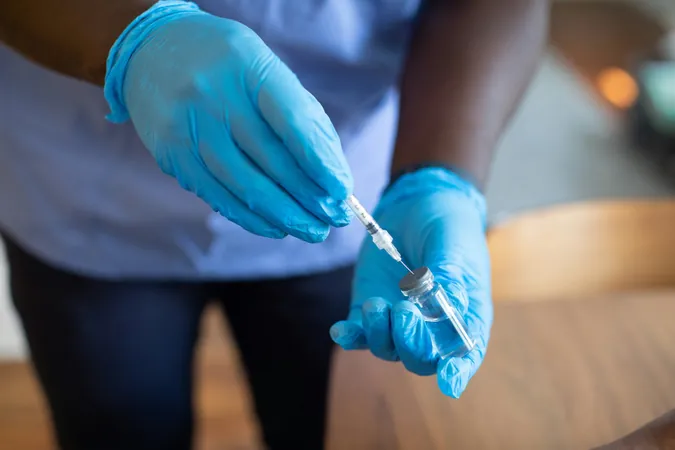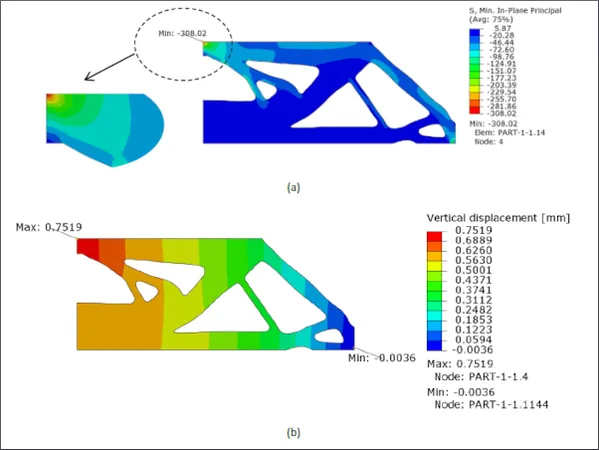
Revolutionary 'Just-in-Time' Coaching Method Enhances Patient Safety in Medical Procedures!
2024-12-16
Author: Sarah
Groundbreaking approach to patient safety
Research has unveiled a groundbreaking approach that could significantly elevate patient safety during critical medical procedures: providing quick coaching sessions to inexperienced clinicians right before they perform these tasks. This study, highlighted in the Christmas edition of The BMJ, suggests that brief training before a procedure not only boosts success rates but could also transform the landscape of medical training entirely.
The need for immediate coaching
Just as athletes engage in warm-ups and rehearsals to enhance their performance, the medical field remains surprisingly devoid of such practices, especially when the stakes are as high as life and death. To address this glaring oversight, a dedicated team of researchers in the U.S. launched a randomized clinical trial to explore the effects of immediate coaching prior to the intubation of infants—a procedure fraught with challenges for novices.
Challenges of intubation
Intubation, which involves inserting a breathing tube through the mouth and into the windpipe, is notoriously difficult for trainees. Crucially, time pressure and the anxiety of potentially harming a young patient can lead to serious complications, including dangerous drops in oxygen levels and even cardiac arrest.
The clinical trial
Conducted at the prestigious Boston Children's Hospital, the trial encompassed 153 anesthesiology trainees from ten regional training programs. Participants first shared their knowledge and previous experience with infant intubations before being randomly divided into two groups: one received a focused ten-minute training session involving an infant manikin with an expert coach, while the other continued with standard training methods.
Over the course of the study, trainees completed a total of 515 intubations, with remarkable results. The first-attempt success rate soared to an impressive 91.4% among those who received coaching, compared to 81.6% in the control group—a significant ten-percentage-point increase.
Benefits of 'just-in-time' training
Moreover, the benefits of this "just-in-time" training extended beyond initial success. The coached group experienced shorter intubation times, enhanced visibility during the procedure, fewer attempts to place the tube correctly, and a marked decrease in technical difficulties. Intriguingly, these trainees also reported lower cognitive load, meaning they felt less mental strain during the task, an important factor considering that high cognitive load is often linked to increased errors.
Complication rates
While complication rates were lower in the treatment group (2.75%) compared to the control group (4.71%), it's worth noting that although the difference wasn't statistically significant, it remains clinically meaningful.
Concerns addressed
Concerns regarding workflow disruption in busy hospital systems have been alleviated, as researchers found that these brief coaching sessions did not hinder everyday operations or add pressure to coaching staff. The findings from this proof-of-concept study could have far-reaching implications, suggesting that even seasoned clinicians may benefit from such training.
Implications for the future of medical training
As Justine Naylor from the University of New South Wales posits in a linked editorial, this innovative method of point-of-care continuing professional development could pave the way for widespread adoption, ultimately leading to accelerated competency among inexperienced practitioners and a safeguard for their mental well-being.
Conclusion
In conclusion, this study highlights that implementing "just-in-time" training for inexperienced clinicians before high-stakes procedures such as infant intubation can dramatically improve first-attempt success rates, reduce cognitive load, enhance competency, and ultimately lead to safer outcomes for patients. This research could herald a new era of medical training, where the phrase "practice makes perfect" takes on a whole new meaning. Don't miss the future of patient safety—it's closer than you think!



 Brasil (PT)
Brasil (PT)
 Canada (EN)
Canada (EN)
 Chile (ES)
Chile (ES)
 España (ES)
España (ES)
 France (FR)
France (FR)
 Hong Kong (EN)
Hong Kong (EN)
 Italia (IT)
Italia (IT)
 日本 (JA)
日本 (JA)
 Magyarország (HU)
Magyarország (HU)
 Norge (NO)
Norge (NO)
 Polska (PL)
Polska (PL)
 Schweiz (DE)
Schweiz (DE)
 Singapore (EN)
Singapore (EN)
 Sverige (SV)
Sverige (SV)
 Suomi (FI)
Suomi (FI)
 Türkiye (TR)
Türkiye (TR)